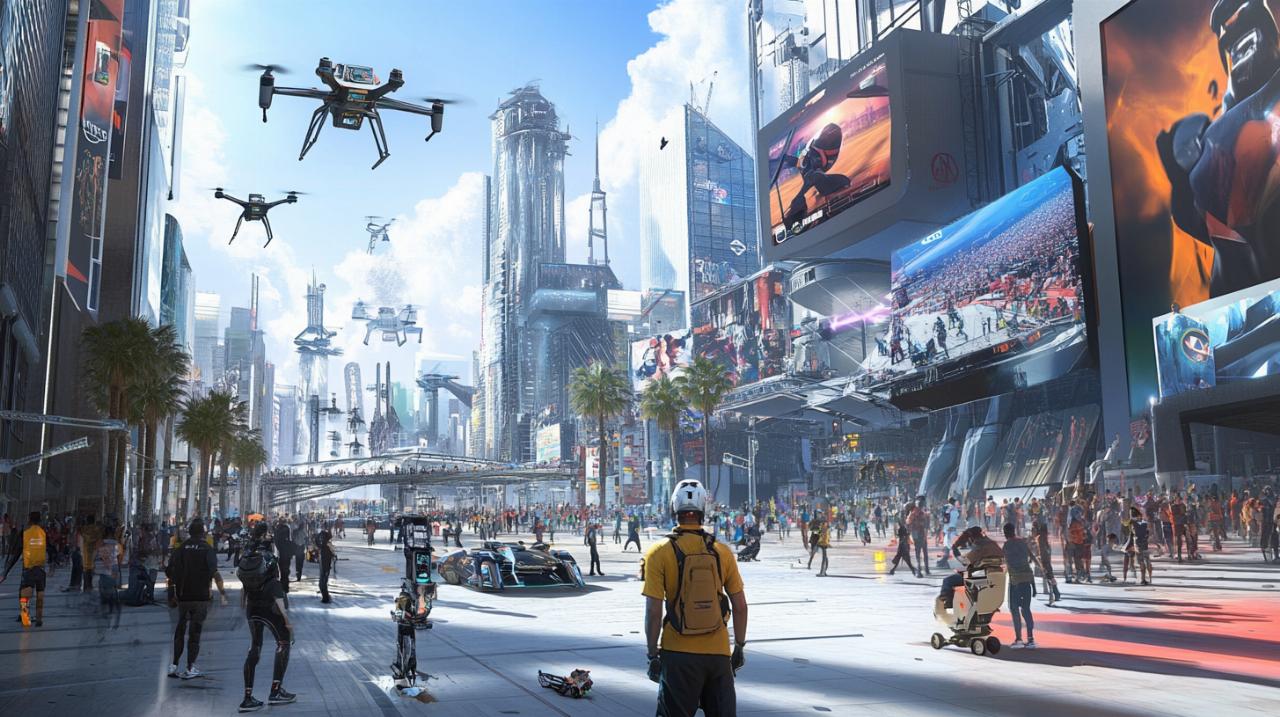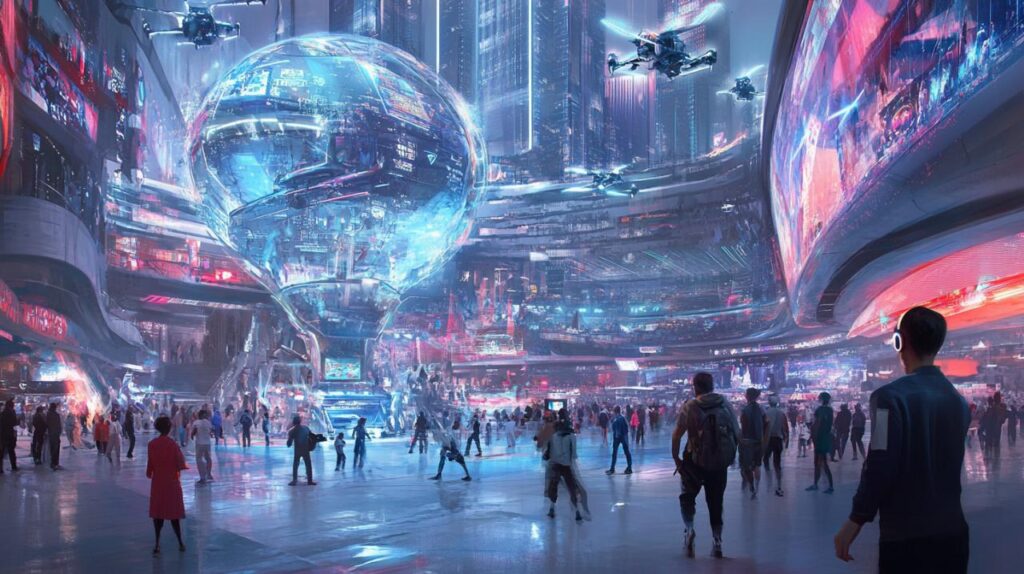As we navigate through the ever-evolving landscape of contemporary existence, it becomes increasingly apparent that the ways in which people live, work, and interact are undergoing profound transformations. From the integration of cutting-edge technology into our homes to the growing emphasis on environmental responsibility, the fabric of daily life is being reshaped by forces both digital and ecological. Understanding these shifts offers valuable insight into the values and priorities that define our present moment, as well as the direction in which society is headed. The influences steering these changes are diverse, ranging from technological innovation to a renewed commitment to sustainability, each playing a pivotal role in determining how individuals and communities choose to live.
The Digital Revolution and Its Impact on Daily Living
The digital revolution has fundamentally altered the way people approach their everyday routines, embedding technology into the very core of domestic and professional life. This transformation is not merely about the presence of gadgets and devices, but rather about how these tools have become seamlessly integrated into the rhythm of daily existence. The proliferation of smart technology has made it possible for individuals to manage their homes, communicate with others, and access information with unprecedented ease, creating a new standard of convenience and efficiency. However, this rapid advancement has also introduced challenges, particularly around trust and authenticity in the online realm. As modern lifestyle trends continue to evolve, the digital sphere remains a central force, shaping not only how tasks are accomplished but also how people perceive and engage with the world around them.
Smart technology integration in british households
Across the United Kingdom, households are increasingly embracing smart technology as a means of enhancing comfort, security, and energy efficiency. Devices ranging from intelligent thermostats to voice-activated assistants have become commonplace, transforming living spaces into interconnected environments that respond to the needs and preferences of their occupants. This shift towards automation reflects a broader desire for simplicity and control, allowing individuals to manage various aspects of their homes remotely and with minimal effort. Yet, this growing reliance on digital systems has also heightened concerns about privacy and data security, as well as the authenticity of the information accessed through online platforms. A significant portion of the population now questions the credibility of content encountered on the internet, with many reporting increased scepticism due to the prevalence of misleading material and fraudulent activity. The rise of artificial intelligence has further complicated matters, as sophisticated scams and manipulated media become harder to distinguish from genuine information. Despite these challenges, the appeal of smart technology remains strong, driven by the tangible benefits it offers in terms of convenience and efficiency. The integration of wearables and health-monitoring applications has also gained traction, enabling individuals to track their wellbeing and make informed decisions about their physical and mental health. As these technologies continue to evolve, the balance between innovation and caution will remain a critical consideration for consumers navigating the digital landscape.
Remote Work Culture and the Transformation of Urban Spaces
The shift towards remote work has had a profound impact on urban planning and the structure of professional life, fundamentally altering the relationship between people and their workplaces. With the flexibility to work from home or other non-traditional settings, many employees have re-evaluated their priorities, placing greater emphasis on achieving a balance between their professional obligations and personal lives. This re-calibration has led to a reassessment of what constitutes a fulfilling work environment, with many individuals seeking roles that offer autonomy, flexibility, and a sense of purpose. However, the transition has not been without its difficulties, as some workers report feeling undervalued or disconnected from their organisations. A considerable number of employees express scepticism about whether their employers genuinely prioritise their wellbeing, with productivity often appearing to take precedence over holistic support. This sense of disconnection has prompted discussions about the importance of fostering trust and meaningful engagement within workplaces, particularly as the traditional office model continues to evolve. Urban areas are also adapting to these changes, with commercial districts experiencing shifts in demand as more people opt to work remotely. The transformation of city centres reflects broader trends towards creating spaces that accommodate both professional and leisure activities, blending work and lifestyle in innovative ways. As these developments unfold, the concept of work itself is being redefined, with a growing recognition that employee satisfaction and organisational success are deeply intertwined.
Sustainability and Environmental Consciousness as Lifestyle Drivers

Environmental awareness has emerged as a defining characteristic of modern living, influencing decisions across a wide range of areas from consumer behaviour to personal habits. The urgency of addressing climate change and resource depletion has prompted individuals and communities to adopt more sustainable practices, seeking to minimise their ecological footprint and contribute to a healthier planet. This shift is not merely a response to external pressures but reflects a deeper commitment to values such as responsibility, stewardship, and long-term thinking. The principles of sustainability are being woven into the fabric of daily life, shaping choices about what to buy, how to travel, and how to manage resources. This growing consciousness is also driving innovation, as businesses and organisations develop new solutions that align with environmental priorities. The emphasis on sustainability is part of a broader movement towards mindful living, where individuals seek to align their actions with their values and make choices that reflect a commitment to the wellbeing of both people and the planet.
Eco-friendly consumer choices and green living practices
The embrace of eco-friendly consumer choices has become a hallmark of contemporary lifestyle trends, with many individuals actively seeking products and services that align with their environmental values. This shift is evident in the growing popularity of organic and locally sourced foods, as well as the increasing demand for goods made from sustainable materials. People are becoming more discerning about the origins and impact of their purchases, favouring brands that demonstrate transparency and a commitment to ethical practices. The rise of green living extends beyond shopping habits to encompass a broader range of behaviours, including efforts to reduce waste, conserve energy, and support initiatives that promote environmental protection. Lifestyle medicine has also gained prominence, with its focus on nutrition, exercise, stress management, and sleep as key components of overall health and longevity. Advances in technology have enabled individuals to integrate wearables and applications into their daily routines, providing personalised insights and interventions that support healthier living. The intersection of wellness and sustainability reflects a holistic approach to lifestyle, where physical and mental wellbeing are seen as interconnected with environmental health. As people seek to make more informed and intentional choices, the emphasis on education and community engagement has grown, fostering a culture of shared responsibility and collective action.
The Rise of Circular Economy and Minimalist Movements
The principles of the circular economy and minimalism have gained significant traction as people seek alternatives to the traditional model of consumption and disposal. The circular economy emphasises the importance of designing products and systems that minimise waste, promote reuse, and extend the lifecycle of materials, thereby reducing the strain on natural resources. This approach challenges the prevailing notion of a linear economy, where goods are produced, used, and discarded, and instead advocates for a regenerative system that prioritises sustainability and efficiency. Minimalism, meanwhile, encourages individuals to focus on what truly matters, paring down possessions and commitments to create space for more meaningful experiences and connections. This movement is not about deprivation but rather about intentionality, fostering a mindset that values quality over quantity and encourages thoughtful decision-making. Both the circular economy and minimalism resonate with a growing desire to live more deliberately and responsibly, aligning personal choices with broader environmental and social goals. The integration of these concepts into everyday life reflects a shift towards valuing experiences and relationships over material accumulation, as well as a recognition of the finite nature of resources. As these movements continue to gain momentum, they are reshaping cultural attitudes towards consumption and success, promoting a vision of prosperity that is rooted in sustainability and wellbeing rather than mere accumulation. The emphasis on collaborative care and multidisciplinary approaches further underscores the importance of addressing health and wellness in a comprehensive manner, recognising that individual and collective wellbeing are deeply interconnected with the health of the planet.



